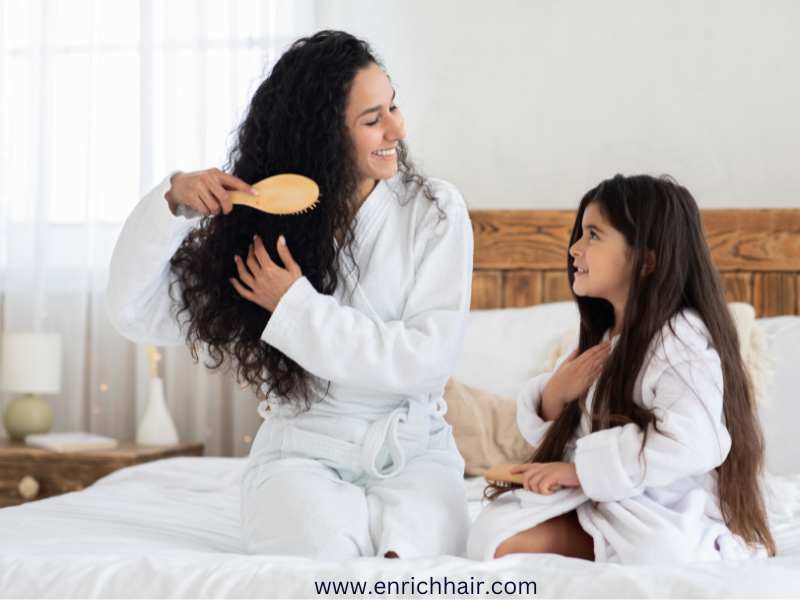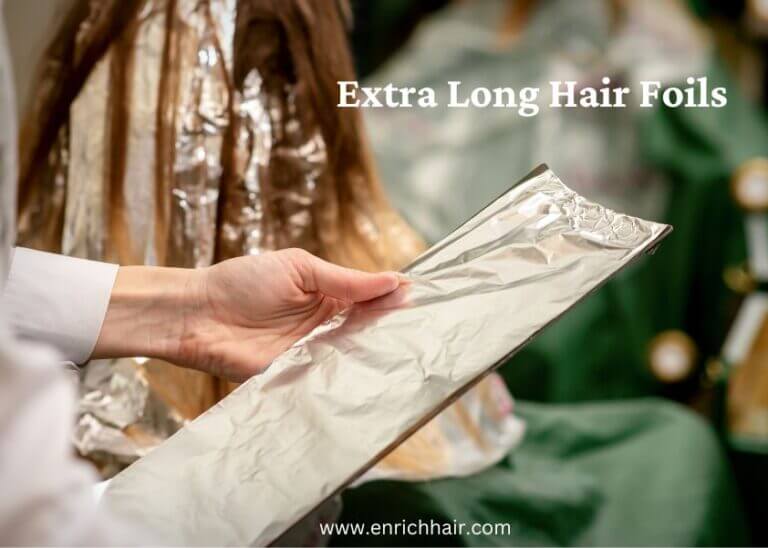Should You Brush Your Hair Before Bed
Table of Contents
In the quiet moments before bedtime, as you prepare to drift into a restful night’s sleep, a seemingly simple question may cross your mind: Should you brush your hair before bed? Beyond the soothing ritual and the satisfying strokes, there lies a fascinating world of hair care secrets. The act of brushing your hair before hitting the pillow is more than just a routine; it can impact the health and appearance of your locks in ways you might not have considered. So, let’s uncover the reasons behind this age-old beauty ritual and discover how it can contribute to the well-being of your tresses.
Understanding Hair Structure
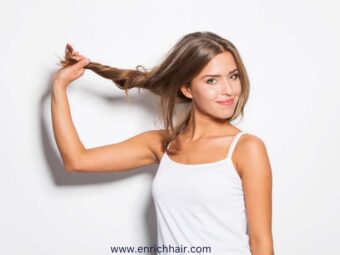
Ever wondered what’s going on beneath the surface of your hair? Well, it turns out, that our hair has its little workshop called the hair follicle. Think of it as a tiny factory hiding under your skin, busy producing each strand of hair. We’ll take a closer look at these follicles and how they work their magic to give you that fabulous head of hair. We’ll explore the nitty-gritty of hair growth, uncovering the secrets of what happens from root to tip.
Hair Follicles and Growth
Picture your hair follicle as the creative force behind your locks, a place where cells team up to create the hair you love. It’s like a miniature construction site for your strands. In this part, we’ll break down the process of how your hair grows and understand the things that influence its growth patterns. Get ready for a fascinating journey into the heart of your hair!
Impact of Brushing on Hair Health
Now that we’ve got the basics down, let’s talk about something we do every day which is brushing our hair. Surprisingly, the way we wield our brushes can make a big difference in the health of our hair. it’s a delightful way to care for your lovely locks.
Benefits of Brushing Before Bed
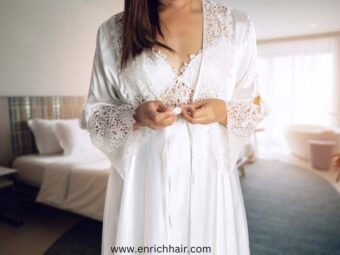
Ever wondered why some people swear by brushing their hair before hitting the hay? Well, turns out, there’s more to it than just a nightly routine. Here are some benefits of Brushing your hair before bed.
-
Distributing Natural Oils
Think of your scalp as a little oil factory, producing the natural oils that keep your hair soft and shiny. It’s like giving your hair a nourishing treat, ensuring each strand gets a fair share of the goodness your scalp works so hard to create.
-
Detangling and Preventing Knots
Who hasn’t faced the morning struggle with tangled hair? We’ll uncover the magic behind those strokes that make combing through your locks a breeze, leaving you with smoother, more manageable hair come morning.
-
Scalp Stimulation
Imagine a gentle massage for your scalp as you brush—sounds nice, doesn’t it? We’ll explore how the act of brushing stimulates your scalp. It’s not just about hair; it’s a mini spa session for your head. It is beneficial, from promoting blood circulation to creating a relaxing pre-sleep ritual that’s good for both your hair and your well-being.
Considerations Based on Hair Type
Just as no two fingerprints are alike, our hair types come with their own unique needs and quirks. Here are some important considerations based on hair types.
-
Straight Hair
Characteristics: Smooth, sleek texture without visible curls or waves.
Considerations: Preventing static, maintaining sleekness, and addressing potential oiliness.
-
Wavy Hair
Characteristics: Smooth, sleek texture without visible curls or waves.
Considerations: Preventing static, maintaining sleekness, and addressing potential oiliness.
Characteristics: Well-defined curls or spirals, ranging from loose to tight coils. Considerations: Gentle detangling, maintaining moisture, addressing dryness for curl health.
-
Coily/Kinky Hair
Characteristics: Tightly curled or coiled, forming a distinct pattern. Considerations: Moisture retention, minimizing breakage, addressing natural shrinkage.
Potential Drawbacks and Myths
In this section, we’ll shine a light on some aspects that might not be as beneficial as they seem.
Overbrushing Risks
Overbrushing refers to excessive brushing, which may lead to unintended consequences.
-
-
Hair Damage:
-
Overbrushing can cause stress on the hair shaft, leading to breakage and split ends.
-
-
Scalp Irritation:
-
Vigorous brushing may irritate the scalp, causing discomfort and potential damage to hair follicles.
-
-
Oil Distribution Issues:
-
Excessive brushing can strip the hair of natural oils, leaving it dry and prone to damage.
-
Prevention:
Moderation is key. Aim for a balanced brushing routine that suits your hair type and needs.
Common Misconceptions
-
Myth: The More You Brush, the Better:
Reality: While brushing has its benefits, more is not always better. Overdoing it can lead to the risks mentioned in 5.1.
-
Myth: Brushing Wet Hair Causes More Damage:
Reality: Wet hair is more vulnerable, but using a wide-tooth comb or a gentle brush can help prevent damage during detangling.
-
Myth: Brushing Makes Hair Grow Faster:
Reality: Brushing stimulates the scalp, promoting blood circulation, but it doesn’t directly affect the speed of hair growth.
Choosing the Right Brush
Choosing the right brush is also very important. There are different types of brushes with different qualities, so you have to choose the right one according to your hair type.
Types of Brushes
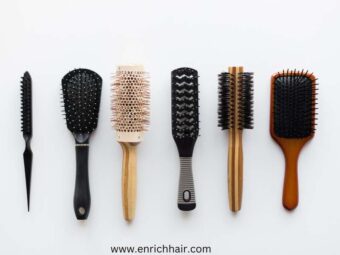
-
Paddle Brush:
Ideal for: Straight hair and detangling.
Features: Flat, wide surface with flexible bristles.
-
Round Brush:
Ideal for: Adding volume and styling during blow-drying.
Features: Circular shape with bristles around the entire surface.
-
Wide-Tooth Comb:
Ideal for: Detangling wet hair, especially for curly and kinky hair.
Features: Wide spaces between teeth to minimize breakage.
-
Bristle Brush:
Ideal for: Distributing natural oils for added shine.
Features: Natural bristles that glide through the hair, reducing static.
Best Brush for Your Hair Type
-
For Straight Hair: Paddle Brush
Why: Smooths and detangles without creating additional waves or curls.
-
For Wavy Hair: Round Brush
Why: Adds volume and enhances natural waves during styling.
-
For Curly Hair: Wide-Tooth Comb or Bristle Brush
Why: Minimizes breakage during detangling or adds shine without disrupting curls.
-
For Coily/Kinky Hair: Wide-Tooth Comb
Why: Gently detangles without causing damage to tight coils.
Additional Tips for Nighttime Hair Care
Taking care of your hair doesn’t stop when the sun goes down. Nighttime is an excellent opportunity to provide some extra love and protection to your locks. Consider incorporating the following tips into your bedtime routine for healthier and more manageable hair.

-
Using Silk or Satin Pillowcases

Benefits: Silk and satin are smoother than cotton, reducing friction and preventing hair breakage.
Why: These fabrics help maintain your hairstyle and minimize tangling during sleep.
-
Tying Hair Back

Benefits: Prevents tangles and reduces friction between your hair and the pillow.
Why: Especially beneficial for longer hair, tying it back can help maintain styles and minimize morning detangling.
-
Applying Leave-In Conditioner
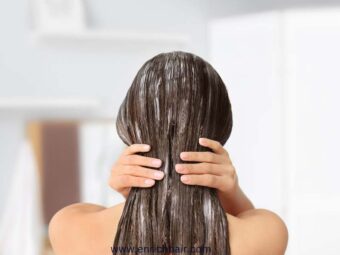
Benefits: Adds moisture and nourishment to your hair while you sleep.
Why: Helps combat dryness and keeps your hair hydrated, contributing to overall health and manageability.
Conclusion
In wrapping up our hair care journey, it’s clear that taking care of our locks is like tending to a beautiful garden—each hair type requires its special care. Whether your hair is straight, wavy, curly, or kinky, understanding its unique needs is the key to a happy and healthy mane. From choosing the right brush to bedtime rituals like using silk pillowcases, it’s the little things that make a big difference. So, the next time you reach for that brush or consider your nightly routine, remember that a little love and attention go a long way in keeping your hair looking fabulous. Here’s to embracing your unique beauty and nurturing those lovely locks!
Frequently Asked Questions
Can I brush my wet hair before bed?
Wet hair is more prone to breakage, so it’s advisable to use a wide-tooth comb on damp hair rather than a brush. Detangle gently to avoid causing damage.
How many times should I brush my hair before bed?
It’s generally recommended to brush your hair gently and thoroughly before bed. The number of strokes may vary, but focus on detangling and distributing natural oils.
How does brushing before bed prevent tangling?
Brushing helps remove knots and tangles that may have formed during the day, preventing them from getting worse overnight.
Are there any situations where I shouldn’t brush before bed?
If you have a specific hairstyle or treatment in place, such as curls or a certain type of leave-in conditioner, it’s advisable to consult with your hairstylist to determine the best care routine for your hair.

